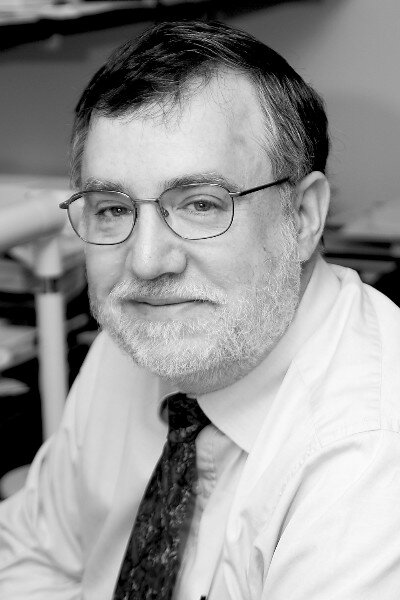>> Back to The HooK front page
NEWS- New vaccine: Life-saving bill could die
Published April 21, 2005, in issue 0416 of the Hook
BY MEGHAN MORAN
A UVA pathologist is part of a world-wide research team that is reporting promising results with a new vaccine that could prevent millions of women from hearing the dreaded words, "You have cancer." But while the vaccine appears to destroy several key strains of the virus that causes most cases of cervical cancer, which will kill about 3,700 American women this year, the drug is mired in controversy.
"How can we not vaccinate people when we can prevent a truly horrible cancer and a lot of medical hardship?" asks Mark Stoler, a UVA researcher who contributed to the clinical trial published in the online edition of the British medical journal The Lancet Oncology.
Stoler points out that even when it's not fatal, 10,000 American women will be diagnosed with cervical cancer this year. Treatments include radiation, surgery, and chemotherapy. The lucky ones will only lose part of their cervix, the lower end of the uterus. Other women may be left permanently infertile from having to undergo a hysterectomy, complete removal of the uterus.
The vaccine, owned by Merck, which funded the study, attacks four key strains of the human papilloma virus. It stopped all genital warts caused by the targeted strains of the virus and was 90 percent effective in preventing infections that can lead to cancer.
So where's the controversy? It starts with sex. While people who have sex with only one person (another virgin) during the course of their life have no worries about infection, the majority of Americans may have plenty to fear. Statistics show that at least half of the rest of the population-- known as "sexually active" men and women-- will be infected by the virus at some point.
Men typically have no way of knowing they have the human papilloma virus unless they develop genital warts. Women, however, typically get the bad news through a "pap" smear, a recommended annual test that indicates abnormal cells in the cervix-- a sign of viral infection and a possible precursor to cancer.
Besides being difficult to detect, the virus is also hard to protect against because it is transferred through skin-to-skin contact in the genital area-- territory that a condom doesn't necessarily cover. And while the communicable nature of the virus makes it a prime candidate for public health funds, its status as a sexually transmitted infection makes widespread vaccination highly controversial.
"We're going to have this vaccine," Stoler says, "and then we're going to have to go have a conversation with every parent in America."
There's the rub. In order to protect people as adults, the vaccine must be administered before they are sexually active. In other words: children. Stoler and others envision vaccinating youngsters 10 to 13 years old.
But Barbara Loe Fisher, co-founder and President of the National Vaccine Information Center, is in no hurry to add yet another vaccine to the regimen already offered to innocents.
"You will definitely see parents, because of the way they have raised them, [or] for philosophical, religious, or ethical reasons," Fisher says, "who will not want their children to have this vaccine."
Currently, there are 12 potentially serious diseases that can be vaccinated against. The Virginia Department of Education requires seven vaccinations including those that prevent polio, measles, and mumps-- for any child entering the public school system.
Vaccines in general are already under fire for allegedly infecting some children with live viruses and dosing them with mercury. So how likely is it that Virginia's General Assembly-- which already outlaws certain sexual contact between consenting adults-- will add this vaccine to the mandated list?
"Very remote," says outgoing Delegate Mitchell Van Yahres. The Charlottesville Democrat says he believes that such legislation wouldn't even make it out of the House Health Committee until more liberal Democrats get elected.
Another factor working against cervical cancer preventives is the survival rate. Although it's still in the top-10 of American cancer diagnoses, cancer of the cervix has fallen out of the top 10 killers.
While regular pap tests helped dethrone cervical cancer as the most common cause of death of women in developed countries, it is still a leading cancer killer for many women worldwide. In South Africa, for instance, it's still the #1 killer.
So regardless of what happens in the United States, the vaccine, now under study in large-scale trials, has the potential to make a huge global impact. Fred Wyand, a program coordinator with the American Social Health Association, anticipates a big role because of the vaccine's potential to save countless lives beyond U.S. borders.
"Instituted globally," says Wyand, "it has the potential to eliminate most of the cervical cancers found across the world."

Pathologist Mark Stoler wants a conversation with every parent in America.
PHOTO BY LAUREN BROOKS
#
>> Back to The HooK front page
|